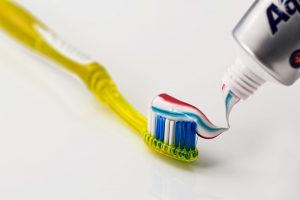Oral care doesn’t have to be overly complicated. Daily brushing and flossing, combined with regular visits to your dentist, will cover the basics. But of course, there are nuances within those guidelines that could make a big difference in giving your unique teeth the unique care they need.

One question we get a lot has to do with hard vs. soft toothbrushes and which is best for your mouth.
Extra soft? Soft? Medium? Hard?
When it comes to toothbrush bristles, there is a wide range of options to choose from. Multiple layers, angled bristles, and of course, bristle stiffness can all make your journey into the toothbrush aisle a little more confusing.
When it comes right down to it, however, you really have two main options for bristle stiffness: soft and hard. Extra soft bristles are typically reserved for people who struggle with gum disease or other gum issues, since they are especially gentle on the gums. Meanwhile, hard bristles are becoming harder to find as well.
What’s the problem with hard bristles?
Most people brush too hard (that is, with too much pressure). That pressure, combined with a hard-bristled toothbrush, can harm gums and tooth enamel, potentially leading to serious problems down the road.
Does a soft-bristled toothbrush really get the job done?
Yes! Soft-bristled toothbrushes are just as effective at cleaning your teeth, and they do it without causing excess damage to your teeth and gums. Most electric toothbrushes use soft-bristled heads.
How can I make sure my teeth are getting clean?
The secret to effective cleaning lies more in the technique than in the brush itself. When brushing, angle your brush’s bristles toward the gum line, and brush with small, circular motions. Remember: don’t use too much pressure.
What if I feel like my teeth aren’t getting clean enough?
If you’re ever concerned about your teeth, gums, or overall oral health, the best thing to do is talk to your dentist. They can recommend the right toothbrush, toothpaste, floss, and mouthwash to take care of your specific oral health needs.
Chances are, a soft-bristled toothbrush will work for you. Focus on your brushing technique, and talk to your dentist if you still have concerns. Maintaining your healthy smile doesn’t have to be complicated!